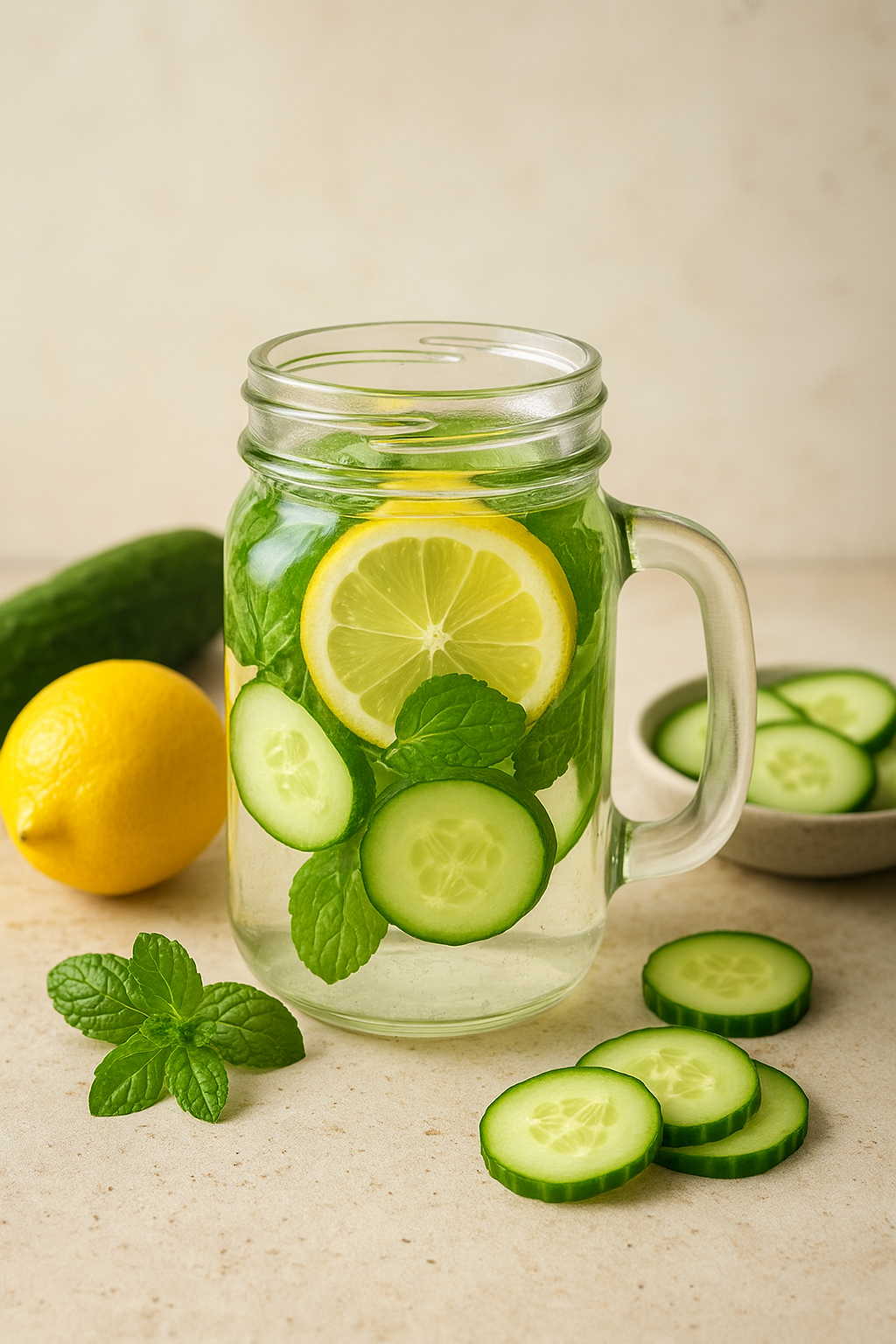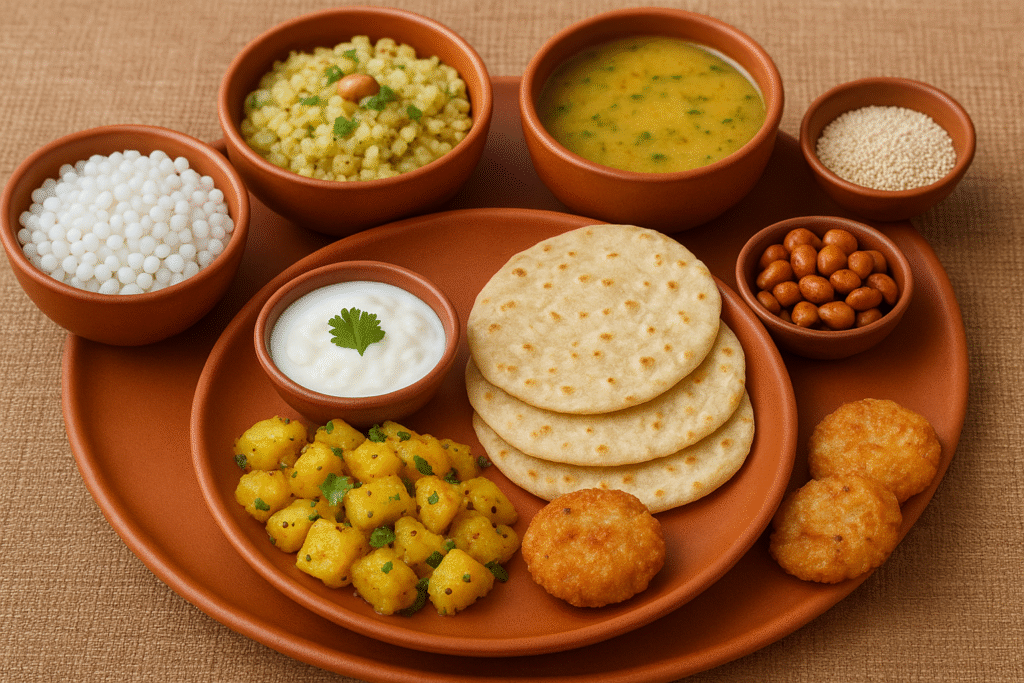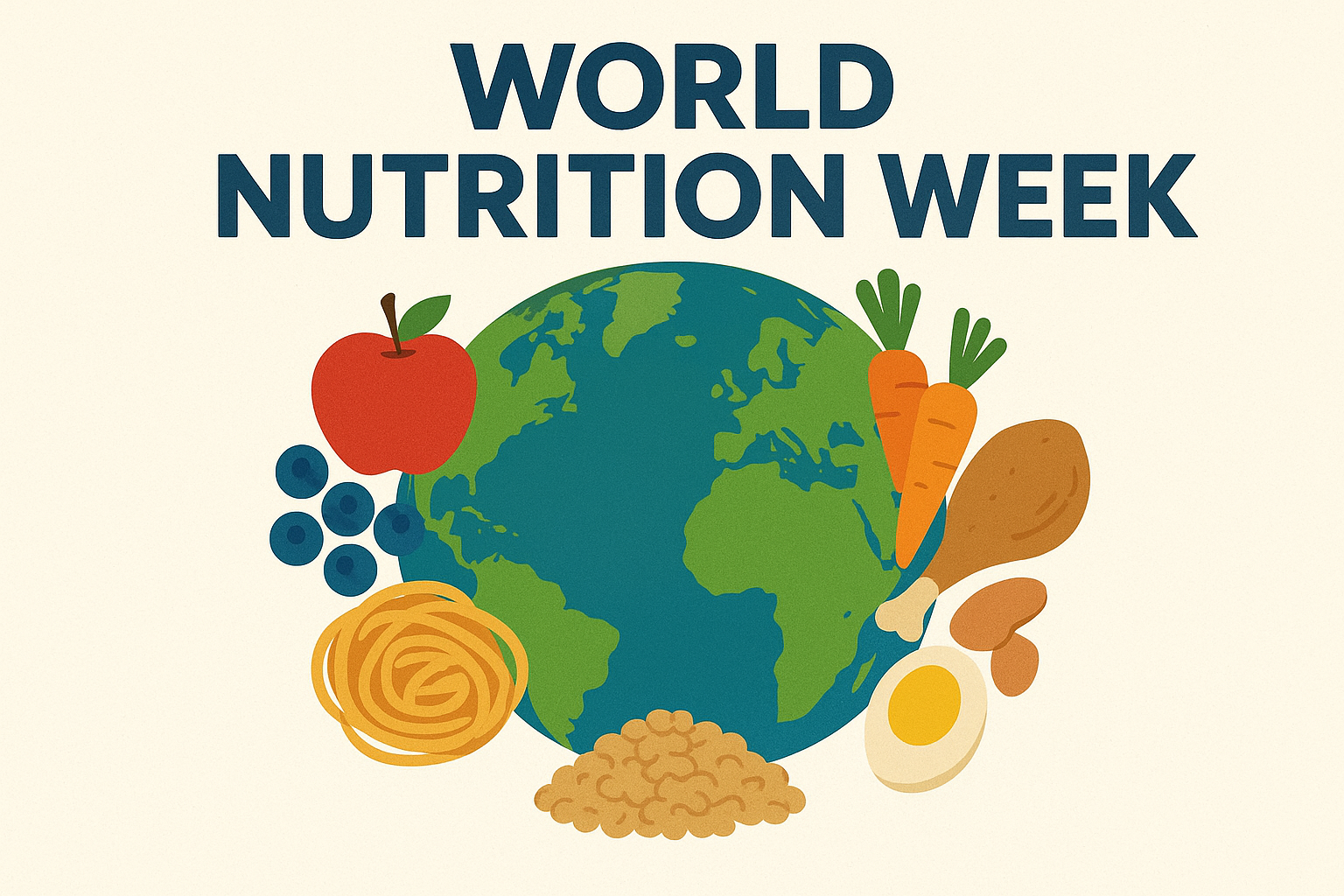
Your Complete Navratri Diet Guide for 9 Days of Healthy Fasting
While fasting is spiritually enriching, it’s equally important to follow a healthy diet to maintain energy, boost immunity, and support overall well-being.
This guide will take you through a complete 9-day Navratri diet plan, with meal ideas, tips, and recipes to make your fasting healthy, balanced, and enjoyable.
Why Focus on a Healthy Navratri Diet?
Many people think fasting means skipping meals or eating just fruits, but this can lead to low energy, digestive issues, and nutrient deficiencies. A proper Navratri diet:
- Provides essential nutrients like protein, vitamins, and minerals
- Keeps you energized throughout the day
- Supports digestion and detoxification
- Enhances mental clarity and focus during spiritual practices
Navratri Fasting Basics
Before diving into the meal plan, it’s essential to understand what’s typically allowed during fasting:
Allowed foods:

- Fruits and vegetables.
- Milk, yogurt, and other dairy products
- Fasting flours: buckwheat (kuttu), water chestnut (singhada), amaranth (rajgira), or barnyard millet (samak)
- Nuts and seeds
- Herbal teas and natural sweeteners like jaggery
Foods to avoid:
- Rice, wheat, and refined flour
- Heavy, oily, or fried foods
- Packaged snacks, processed foods, and junk food
9-Day Navratri Diet Plan
Here’s a day-by-day plan to keep your fasting healthy and energizing:
Day 1: Light and Refreshing
Morning: Warm water with lemon
Breakfast: Fruit salad with soaked almonds and walnuts
Snack: Coconut water and a handful of roasted makhana
Lunch: Singhare (water chestnut) flour roti with steamed vegetables
Evening Snack: Herbal tea with dates
Dinner: Vegetable soup or khichdi made with barnyard millet
Day 2: Protein-Packed
Morning: Lukewarm water with honey
Breakfast: Kuttu pancakes (buckwheat flour) with yogurt
Snack: Fresh fruit or coconut slices
Lunch: Samak rice khichdi with spinach and carrots
Evening Snack: Roasted chickpeas or foxnuts
Dinner: Light vegetable stew with dairy or paneer
Day 3: Energy Boosting
Morning: Lemon water with chia seeds
Breakfast: Banana and almond smoothie
Snack: Fresh fruit or a handful of mixed nuts
Lunch: Singhare ki roti with bottle gourd curry
Evening Snack: Herbal tea with roasted makhana
Dinner: Mixed vegetable soup with yogurt
Day 4: Fiber Focus
Morning: Warm water with soaked fenugreek seeds
Breakfast: Rajgira porridge with nuts and jaggery
Snack: Fresh fruits like papaya or apple
Lunch: Buckwheat roti with pumpkin or ridge gourd curry
Evening Snack: Coconut water and foxnuts
Dinner: Light vegetable stew or khichdi
Day 5: Immune Boosting
Morning: Lemon water with honey
Breakfast: Fruit bowl with seeds (chia, flax, sunflower)
Snack: Handful of roasted nuts or coconut slices
Lunch: Samak rice with green beans and carrots
Evening Snack: Herbal tea with dates or figs
Dinner: Steamed vegetables with yogurt
Day 6: Detox Day
Morning: Warm water with lemon
Breakfast: Soaked almonds and papaya
Snack: Herbal tea with makhana
Lunch: Singhare ki roti with bottle gourd or spinach curry
Evening Snack: Fresh coconut or fruit slices
Dinner: Khichdi with vegetables
Day 7: Energy Sustaining
Morning: Coconut water
Breakfast: Kuttu pancakes with yogurt or honey
Snack: Roasted foxnuts or a handful of nuts
Lunch: Barnyard millet (samak) roti with pumpkin curry
Evening Snack: Herbal tea with dates
Dinner: Vegetable soup with paneer cubes
Day 8: Nutrient-Rich
Morning: Lemon water with chia seeds
Breakfast: Fruit smoothie with almond milk
Snack: Fresh fruits or roasted nuts
Lunch: Singhare ki roti with spinach or pumpkin
Evening Snack: Herbal tea with makhana
Dinner: Light khichdi with vegetables
Day 9: Celebratory & Light
Morning: Warm water with honey and ginger
Breakfast: Fruit bowl with soaked nuts
Snack: Roasted foxnuts or coconut slices
Lunch: Kuttu roti with a rich vegetable curry
Evening Snack: Herbal tea with dates
Dinner: Steamed vegetables and yogurt
Tips for a Successful Navratri Diet

- Stay Hydrated: Drink at least 2–3 liters of water or coconut water daily.
- Eat Small Meals: Instead of one heavy meal, have 4–5 small portions.
- Include Protein: Nuts, seeds, yogurt, and paneer help maintain energy levels.
- Avoid Junk Food: Fried or packaged foods can lead to fatigue and digestive issues.
- Mindful Eating: Eat slowly and appreciate each bite; it improves digestion and satisfaction.
Benefits of a Balanced Navratri Diet
- Detoxifies your body naturally
- Boosts immunity
- Improves digestion and metabolism
- Enhances mental clarity and spiritual focus
- Keeps you energized during fasting.










